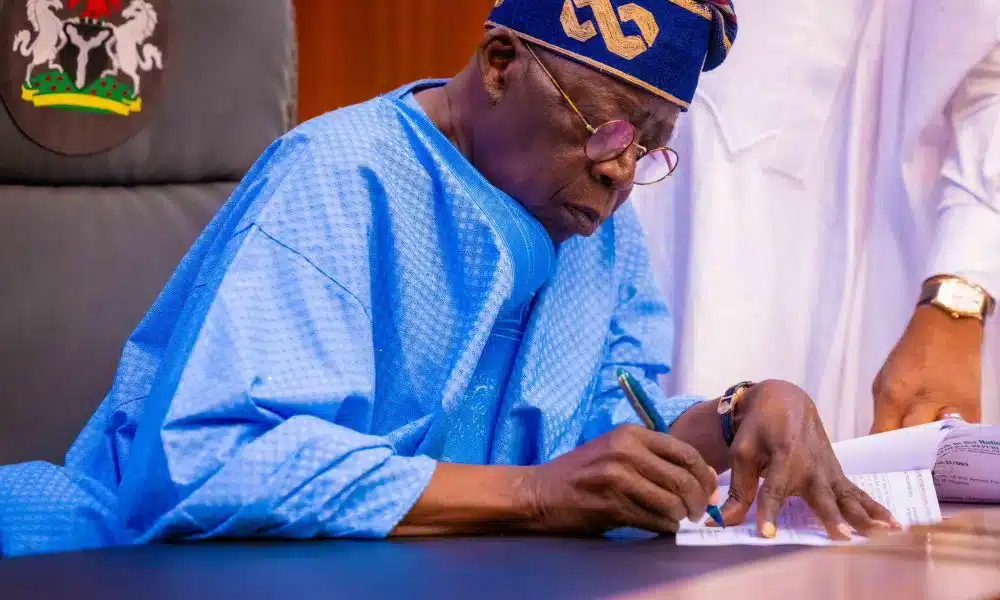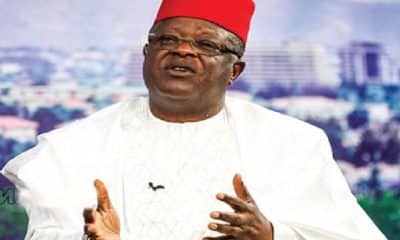Nigeria News
What Tinubu’s Reforms In Oil And Gas Sector Aim To Achieve – Verheijen

President Bola Ahmed Tinubu’s reforms in the oil and gas sector aim to boost revenue and stabilize Nigeria’s economy.
The Special Adviser on Energy to the President, Olu Arowolo Verheijen, stated this on Friday at a press conference in Abuja.
She said key directives of the reforms include fiscal incentives for gas development, streamlining contracting processes, and local content reform to attract investments and promote growth.
She said: “Our ambitions to accelerate our economic growth and diversify the economy for the benefit of all Nigerians requires timely, credible, clear and consistent policy.
“We are faced with a revenue crisis which is impacting all Nigerians. To urgently address this, President Bola Tinubu is actively seeking
ways to grow revenue and forex to stabilize our economy and currency.
“The Oil and Gas sector is critical to our ability to do so. However, our current oil and gas production and investment levels fall significantly short of our potential.
“Since 2016, Nigeria has only accounted for only four per cent (4%) of Africa’s total oil and gas investments, despite possessing thirty-eight per cent (38%) of the continent’s hydrocarbon reserves. A society is not rich because of its resources but because of what it does with those resources
“His Excellency, President Bola Ahmed Tinubu is determined to reverse this trend and take decisive steps to ensure to a conducive business climate and reposition Nigeria as a preferred investment
destination for the oil and gas sector.
“To achieve these objectives, Mr President has issued a Presidential Directive to streamline and clarify the scope of the two Regulators in the petroleum sector to provide certainty and create a conducive business environment.
“He has also directed the NSA and Special Adviser on Energy to coordinate enhanced security measures in the Niger Delta. Owing to thie directive, the TNP pipeline which had been repeatedly vandalized is now enjoying improved uptime; availability has practically doubled since these directives were implemented.
“This has translated to increased liquids of over 200,000 barrels/day being transported over the last 6 months. It has increased the availability of NLNG Trains 1-6 from 57% in 2023 to 70% in Q1 2024.
“The President has also introduced fiscal incentives to deepen Compressed Natural Gas (CNG) and Liquified Petroleum Gas (LPG) penetration. These incentives were designed to ease the impact of fuel subsidies on transportation cost and enable the displacement of PMS/Diesel and to contribute to stabilizing the price of cooking gas in the
market and support the transition to clean cooking. Following extensive engagements, analysis and benchmarking, with industry operators and regulators, the President has taken further action to address foundational issues identified in the course of these engagements.
“Mr President has initiated amendment of primary legislation to introduce fiscal incentives, reduce project execution timelines and promote cost efficiency.
“However, recognising the urgency
to accelerate investments to stabilise the economy, His Excellency executed these Policy Directives to clearly signal the policy direction of this administration to both the market and regulators. The Policy Directives are: Fiscal Incentives for Non-Associated Gas (NAG), Midstream and Deepwater Oil & Gas Developments: This The directive aims to facilitate the monetization of Nigeria’s extensive oil and gas resources.
“For Gas, 76% of our gas reserves, remain undeveloped. This explains why, despite possessing one of the largest gas reserves globally, we lack sufficient gas to meet our domestic needs for industry, for power and for cooking. The fiscal incentives introduced will attract the much-needed investments to enhance energy security, catalyze economic activity, attract essential foreign exchange, and promote job creation. Streamlining of Contracting Processes, Procedures and Timelines.
“The President has issued directives to reduce contracting timelines and project delivery. Benchmarking and analysis revealed that the
contracting cycle takes up to 36 months. This Directive should have the effect of compressing this cycle to less than 6 months in line with global averages.
“This will expedite the delivery of oil and gas products to the market and enhance overall value for the country. Local Content Practice Reform directive seeks to ensure that local content requirements are implemented in a manner that does not impede investments or the cost competitiveness of oil and gas projects. This Directive aims to reduce the cost premium of operating in Nigeria, presently averaging at 40%.
“We anticipate significant benefits from this
reform, including the development of local companies’ capacity, thereby generating additional business opportunities, job creation and boosting economic growth.”












